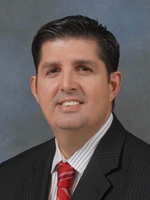A seemingly small change to Florida law could go a long way toward promoting blended learning in public schools.
The measure is sponsored by Rep. Manny Diaz, R-Hialeah, and Sen. Jeff Brandes, R-St. Petersburg, who have teamed up on digital learning bills before.

This one, HB 4013/SB 470 is deceptively simple. It deletes half a sentence from state law, which requires blended-learning students to “receive the online instruction in a classroom setting at the school.”
Diaz, a former public-school administrator, said that requirement has held back schools that want to try approaches like the “flipped classroom,” where students watch recorded lectures on their own time and spend class time working on projects or with their teachers in small groups.
Right now, the law forces blended learning to look a lot like traditional learning, only with students spending more time on computers. That, Diaz said, misses the point.
“Our current statute defines blended leaning so narrowly,” he said. The change would give schools “flexibility to move those students around, and make learning the constant and time the variable.”
Students in blended learning classes would still have to be enrolled full-time, like the rest of their peers, and they would have to receive the same number of hours of instruction. But Diaz said schools should have more flexibility to use that time as they see fit. If students do some coursework online, that could free up class time for projects, independent research, or even extra courses, giving them more chances to knock out seven or eight classes in a semester, instead of the usual six.
Earlier this year, the Choice and Innovation Committee, which Diaz chairs, held hearings on blended learning “roadblocks.” In future years, he said, the state should look at more sweeping changes that would allow students to learn at their own pace.
“That’s the model that not only fits our kids, but fits the technology that’s available,” he said. “The technology exists. It’s the policies that are getting in the way.”


